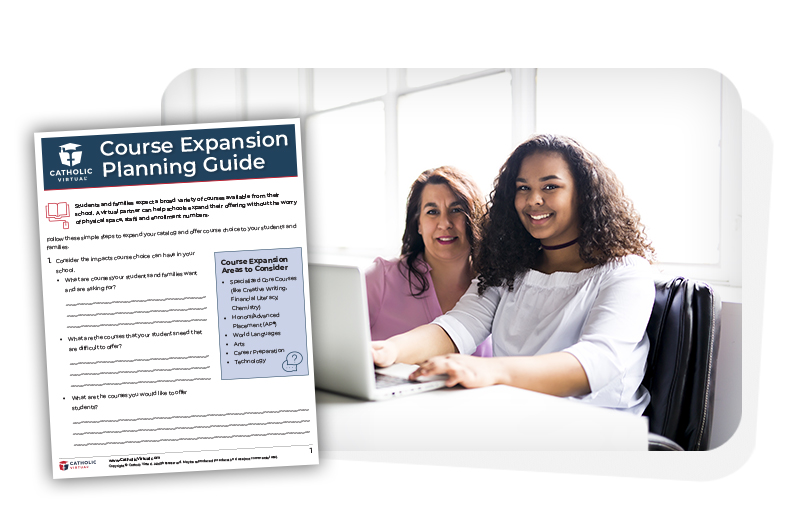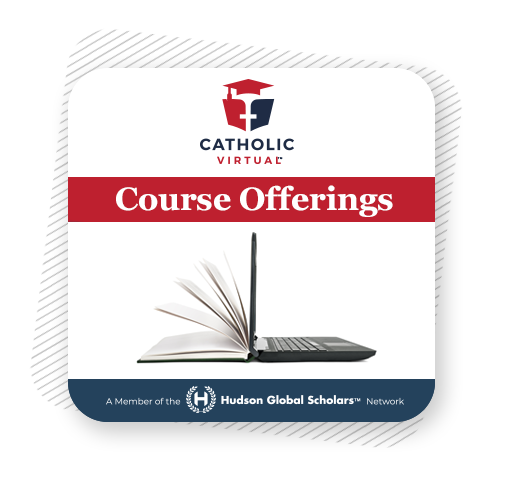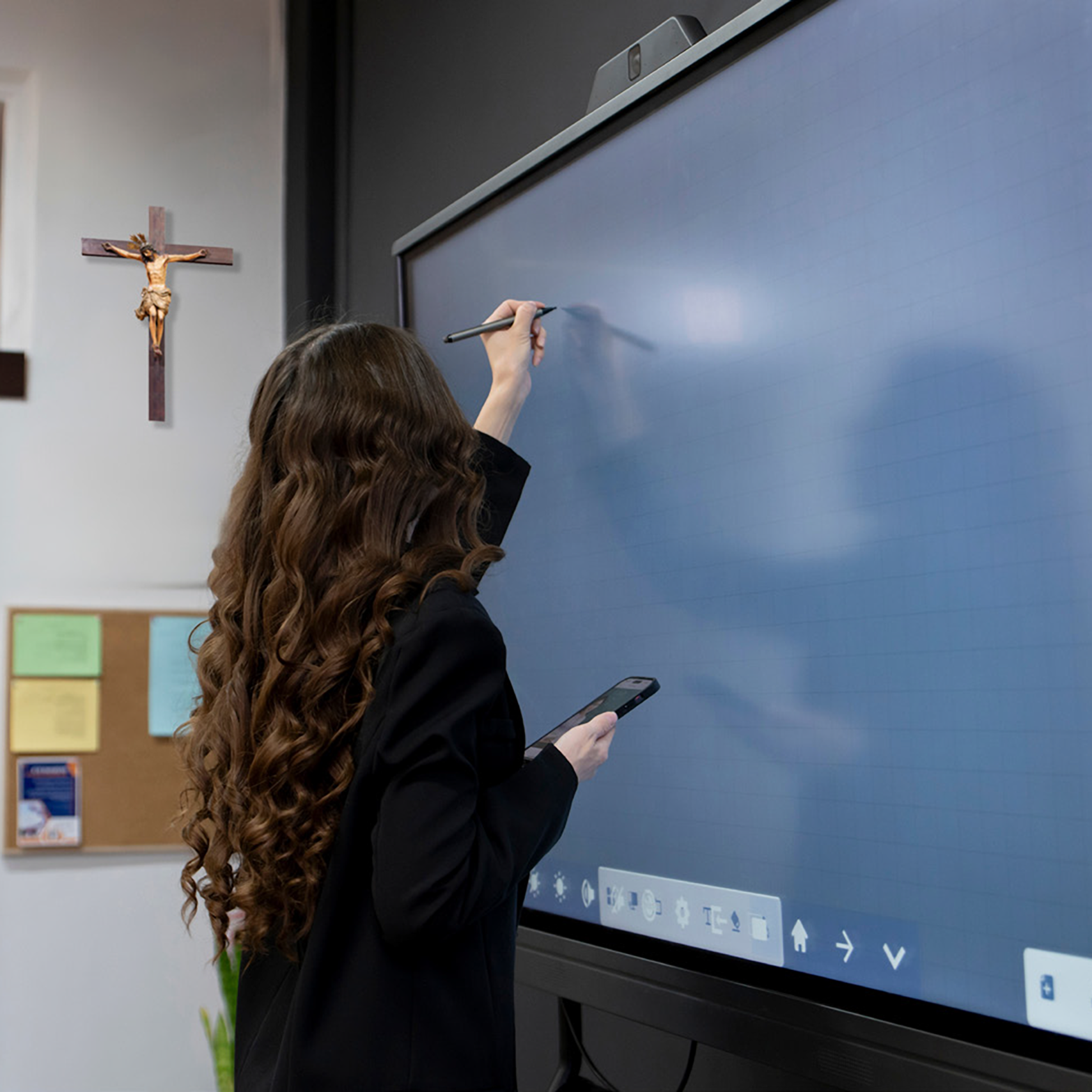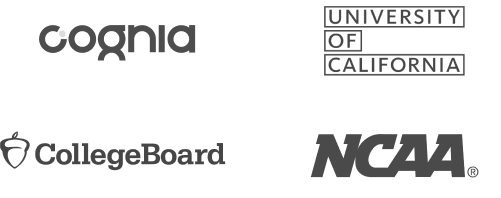Multiply Possibilities with Course Choice and Course Expansion
You’ve likely heard of school choice, but have you ever heard of course choice? Today, more students and families are demanding a broad variety of courses. When schools cannot or do not offer the unique courses students seek, a virtual partner can help expand offerings. This article defines course expansion, shares benefits, and provides guidelines for implementing course choice through catalog expansion. Plus, download a FREE planning guide to help you think about course expansion.
How Course Expansion Supports Course Choice
Course choice is a new movement by schools to expand their course offerings. They can attract and retain a wider range of students than a traditional course catalog can do because of its inherent limitations. Middle and high schools course offerings are limited by parameters like physical space, staff, and enrollment numbers. Even when schools have a generous number of electives for students, they require the classrooms, students to take them, and teachers to run them. Course expansion offers schools the opportunity to add complete courses—from an extensive online catalog and delivered on a virtual platform—to their existing course catalog.
Benefits of Course Expansion
Course expansion has benefits for both students and schools.
Students looking for more or different classes beyond what their brick-and-mortar school or education settings can offer can find breadth and depth with a virtual course catalog. These might be students who are enrolled and attending school regularly or students with extenuating circumstances that cannot physically be on campus. A virtual school can offer core classes (like required math and science courses), electives and harder to find classes (like coding, fine arts, and world languages), and even credit recovery and Advanced Placement (AP) classes.
Students planning to attend college also benefit from taking an online class. Colleges and universities are increasingly offering online and blended courses and sometimes require that students take an online class. Offering virtual courses to high-school students through course expansion supports students with post-secondary readiness.
Schools looking to offer a wider variety of courses led by experts without having to find staff, physical space, and a minimum number of enrolled students will find that the sky's the limit with a virtual course catalog, including core classes, electives, credit recovery, and AP. By adding courses to an existing school catalog, course offerings are instantly expanded. Students can take courses online from and through the school. In this way, course expansion has other benefits to schools. It can reduce class size and take pressure off existing faculty by offering expertise and fulfilling shortages.
“Expanding the course offerings has really upped the game” at Cardinal Gibbons High School in Raleigh, NC, according to Nancy Barkan, Assistant Head of School, who has embarked on a multi-phase course expansion to offer more choice to students. Read about other schools that have implemented school choice with course catalog expansion in a blog post by Catholic Virtual President Rob Birdsell.
How to Implement
Having a strategy for course choice is essential for successfully expanding your catalog. Consider the unique needs of your students or school, and then establish a plan that you can enact in phases to best achieve your goals, support your students, and promote your expanded catalog.
Phases and Goals
Consider your goals for expanding your catalog and any objectives that you can achieve along the way. This may be a multi-step or multi-year plan, so determining phases can help make it manageable. Perhaps you will begin by offering a few online courses or electives that are essential for your students. Then you might grow your catalog by making more courses available for electives.
Get Buy-In
Depending on your education setting, you may need to get approval for course expansion efforts. Be sure that your partner is accredited and offers the courses your students and school want and need. Be ready to clearly communicate the benefits of expanding your catalog to stakeholders, including your school, district, or diocese. Share your vision and strategic plan.
Communicate
Once you’ve expanded your catalog, it’s important to let your students, educators, and families know what courses are available to them. Promote classes and electives alongside core offerings and have a point person to support students and families in understanding their options and how to enroll. A featured course communication or student testimonials can help schools spread the word about course choice.
Course Expansion Planning Guide
If you’re ready for your school and students to benefit from course expansion, use this planning guide to create an implementation plan.

Examples of Courses that Expand Catalogs and Encourage Choice
Are there courses that students want that your school or district doesn’t offer? Catholic Virtual offers a wide variety of courses to meet the unique needs and fulfill the diverse interests of students in elementary, middle, and high school. Here are some examples of courses offered.
Technology-Focused Classes
Students are thirst for technology, and understanding it is essential for their future. Creating and keeping up with technology courses is a challenge; the curriculum needs to adapt quickly and often to adjust for innovations. Expertise is essential, and teachers need to be able to impart understanding at a technical and big picture level. From computer basics and web design to the history of gaming and coding in Python, Scratch, Minecraft, and Roblox, you’ll find a wide array of courses that will make your students eager to learn.
Virtual and Augmented Reality
Recent advances in technology have allowed augmented and virtual reality (AR/VR) systems to become extremely sophisticated and realistic. Virtual and Augmented Reality Applications introduces students to the technologies that underpin AR/VR systems. The course walks through five applications of AR/VR and how they will change and impact numerous aspects of our lives and the economy. Students also learn about and discuss the risks and side effects of these systems on health, privacy, and ethical implications.
Artificial Intelligence (AI)
Artificial Intelligence in the World is an introductory course that guides students through the concepts, tools, and building blocks of artificial intelligence. This course provides students with a broad overview of how AI is used in decision-making and problem-solving worldwide. Students learn how ethics impacts AI and explore the various parts of AI with hands-on activities through the use of chatbots and other exciting interactives.
Coding
Lua is a programming language used in the popular Roblox game. In Roblox Worlds Coding with Lua, students use Roblox studio as they create their own obstacle course and learn how to write custom Lua scripts. Lua programming includes loops, variables, if statements, and other logic statements. Students also create scripts like leaderboard, death script, custom images, AI, and much more.
Explore all we have to offer in our catalog. For tech courses, browse “Electives.”

World Languages
Languages are another example of courses that can be difficult to staff and offer in a traditional school setting. The following turn-key world language courses are some of the many offerings through Catholic Virtual, where virtual teachers teach students American Sign Language, Chinese, French, German, Latin, and Spanish.
American Sign Language
Jump start an American Sign Language journey by learning the basics of this visual language and exploring the Deaf culture with American Sign Language I. Students broaden their concept of communication through connections and comparisons to their own culture and community.
They can continue with American Sign Language II, which reinforces the fundamental skills acquired. Students further advance in signing by enhancing their interpretive and communication abilities. They expand their understanding of communication and Deaf culture by comparing and contrasting their own cultural and communal experiences.
Chinese
In Chinese I and II, students immerse themselves in the beauty of the Chinese language and the richness of its diverse cultures. In the Chinese I course, students will learn beginning grammar and vocabulary skills to help build basic fluency and language proficiency. They explore the culture and apply what they learn through written practice, listening, and speaking exercises.
In Chinese II, further develop the communicative skills of listening, speaking, reading, and writing of Mandarin Chinese at a more advanced level. Students are immersed in Chinese culture as virtual exchange students in China. Virtual excursions from one Chinese city to another expand their vocabulary, helping them learn to interact with others and use appropriate terms to communicate in a variety of everyday situations.
Explore all we have to offer in our catalog. For American Sign Language, Chinese, French, German, Latin, and Spanish courses, browse “World Languages.”
Career Exploration and Preparation
Courses focused on careers help students learn about and consider opportunities available in different fields and the variety of career possibilities within an industry. These courses build the required knowledge and skill that students will need to excel in their careers. They also support students in ways they can promote themselves to land a dream job and become industry leaders. Some courses prepare students for certification.
Agriculture
The Agriscience Foundations course involves the scientific study of agriculture and its local and global impact. Students review agricultural history, learn about scientific and research concepts that drive the field, animal, and plant systems, and the effects of agriculture on the environment. Specialized lab activities provide students with the hands-on practice needed to master the content.
Follow this course up with Agriscience I, II, and III in which students develop an understanding of some of the fundamental issues in agriscience: safety, environmental factors such as climate change and extreme weather conditions, plant and animal science, and food safety.
Construction
In Construction Fundamentals and Careers, students are introduced to the evolving industry of construction. This course builds on standard concepts such as technical skills, project planning, and regulations. Students learn about the variety of career possibilities within construction. The course also invites students to look to the future and analyze trends in green materials, energy efficiency, and technology to determine how these will impact the homes we build and live in.
Building Maintenance Technology is another construction-focused course that covers all aspects of the construction industry from health and safety to the tools that every construction professional needs in their collection. Students learn basic construction math and how to apply it during design and building phases of projects plus specifics about carpentry, construction drawings, framing floor systems, framing walls, and framing roofs.
Education
Early Childhood Education I and II provide an overview of the expectations and roles of the early childhood educator as well as details about childhood development, health, nutrition, and guidance strategies. Within these courses and Teaching as a Profession, students also learn observational methods and the history of education in the United States, with a focus on early childhood and school-age programs. They learn how to implement Developmentally Appropriate Practice (DAP); design physical, social, and temporal environments; and conduct themselves professionally in the education setting.
Check out more career-focused courses in the Catholic Virtual catalog. For career courses, browse “Electives.”
Advanced Placement® Courses
Advanced Placement® (AP®) courses allow high school students to take college-level courses and earn college credit and placement. Catholic Virtual provides AP® courses in every subject.
Art History
In AP® Art History students explore the history of art across the globe from prehistory to the present. Students analyze works of art through observation, discussion, reading, and research. This course prepares students for the AP® Art History exam.
Chemistry
In AP® Chemistry, the equivalent of an introductory college chemistry course, students learn about the fundamental concepts of chemistry including structure and states of matter, intermolecular forces, and reactions. Students do hands-on lab investigations and use chemical calculations to solve problems. This course prepares students for the AP® Chemistry exam.
Catholic Virtual offers 20 AP® courses. Find more information and descriptions in the Catholic Virtual catalog. Browse core subject areas for the relevant AP® courses.
Learn More about Course Expansion
Catholic Virtual offers more than 300 courses for course expansion. Learn more about expanding your catalog and course choice in the Course Choice Case Study and Course Choice: Expand Your Catalog and Students’ Horizons On-Demand Webinar on-demand webinar with Rob Birdsell, President of Catholic Virtual, and Nancy Barkan, Assistant Head of School at Cardinal Gibbons High School in Raleigh, NC. The case study and webinar examine Cardinal Gibbons High School's use of course choice, their implementation, and how it benefits their students and school.
More Articles




Accreditations and affiliations ensuring a world-class online and blended education




 Student Login
Student Login